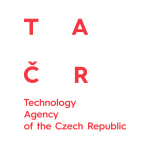Leader of consortium:
Technical University of Liberec
Members of the consortium:
Palacky University Olomouc, AQUATEST Plc., GEOtest Plc., LAC Ltd.
Person responsible:
Doc. Dr. Ing. Miroslav Černík CSc.
Description:
Nanotechnologies and biotechnologies are progressive water treatment methods. Within the work package are developed and tested technologies using simultaneous effects of biotic and abiotic reducing agents (such as metallic iron nanoparticles + biosurfactants) for treatment of groundwater contaminated with chlorinated hydrocarbons. Combined technologies can bring many benefits from increased efficiency, reduced economic demands to synergistic effect of individual technological steps. The work package is focused on development and testing of combined technologies using application of modern oxidative nanomaterials, reductive nanomaterials, biotechnologies or nanofibers.
To verify the combined technologies are used nanomaterials developed within WP1 (metallic iron nanoparticles with appropriate surface modifications), WP2 (iron compounds in high oxidation states) and WP4 (metallic silver nanoparticles) in combination with appropriate preparations to support bioremediation. Application potential of the outcome is particularly in effective remediation of groundwater contaminated with chlorinated ethene (possibly other hydrocarbons) at a lower costs and shorter remediation time compared to using of nanotechnology or bioremediation technology. The technology can have extremely wide potential for various water types and range of contaminants, because they are environmentally acceptable composites applicable also to in-situ remediation of contaminated groundwater and surface water and soils. UPOL is responsible for laboratory development of nanomaterials and combined nano-bio materials including comprehensive size, morphology, surface, structural and chemical characterization. TUL performs all tests of reactivity, migration, kinetics and effect of these materials on model and real water. TUL also prepares technology of application of developed technologies. LAC develops pilot plant and operating units for production of nanomaterials and composites, as well as reactors for applications of these technologies in pilot and industrial scale. Companies AQUATEST and GEOTEST subsequently test the technologies developed in pilot applications and are responsible for their implementation.
The work package WP5 aims at development, optimization and verification of combined (reductive-sorptive, oxidative-sorptive, reductive-antimicrobial) technologies of drinking, waste and groundwater treatment.
Outputs:
Technologies combining bio-nano reductive dehalogenation of contaminated groundwater, oxidative-sorptive treatment of surface water and reductive-antimicrobial treatment of wastewater, including development of pilot plant for application of combined technologies to specific types of pollution.


